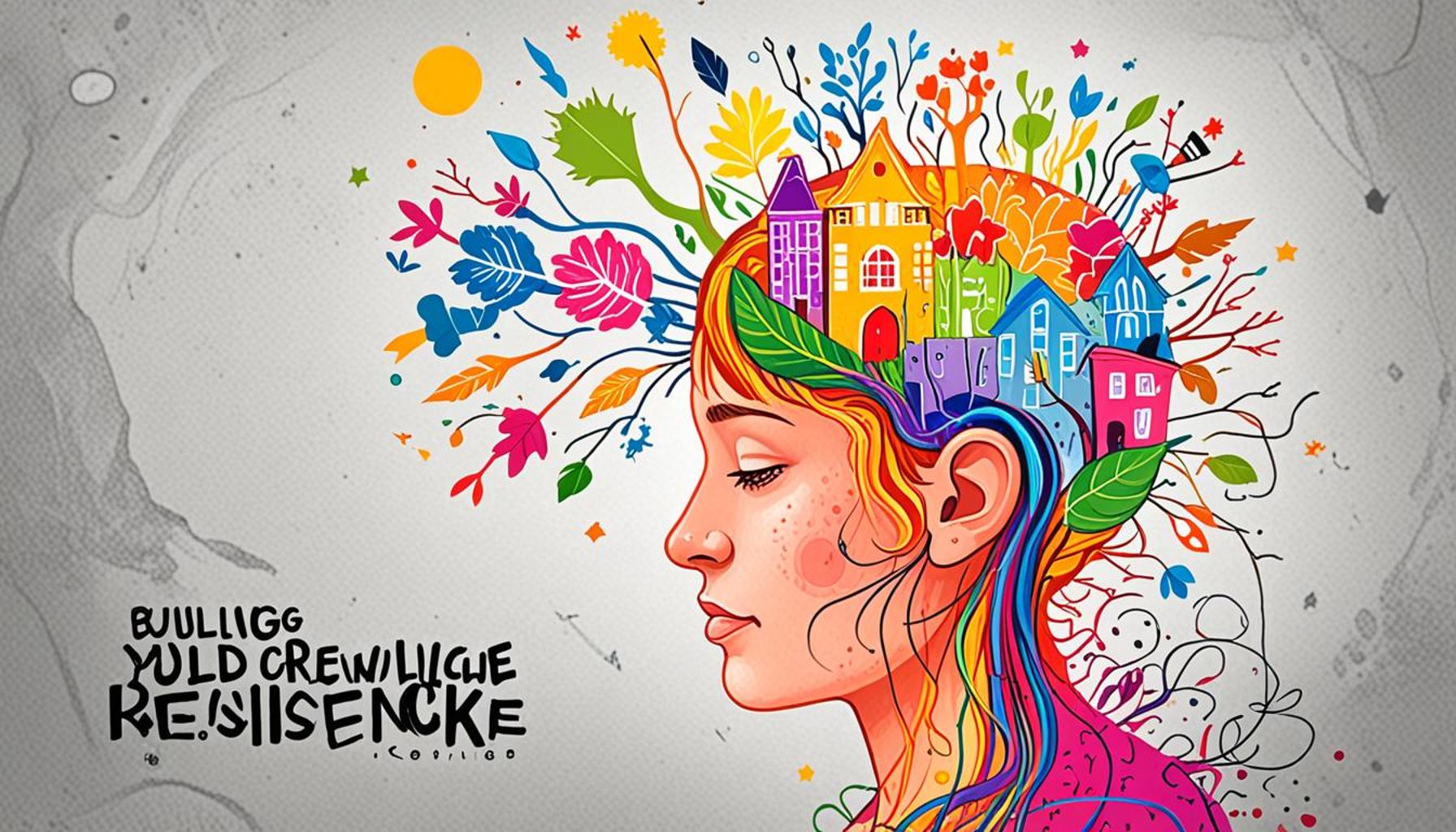Building Resilience in Young Leaders: Applying a Growth Mindset in Education

The Importance of a Growth Mindset
In a world that is constantly evolving, particularly in rapidly developing nations like Nigeria, the importance of adaptation cannot be overstated. Young leaders today are not only confronted with conventional challenges but are also navigating the complexities posed by globalization, technology, and socio-economic shifts. This environment demands more than mere intelligence; it requires resilience and a robust growth mindset. Understanding and cultivating a growth mindset can prepare them to thrive regardless of the challenges they face.
Encouraging Perseverance
One of the cornerstones of a growth mindset is the concept of perseverance. It involves teaching young leaders to frame obstacles as stepping stones rather than barriers. For example, in the context of education in Nigeria, a student who struggles with mathematics might perceive their difficulties as insurmountable. However, by instilling the notion that these struggles are a part of the learning process, educators can foster an environment where perseverance becomes the norm. Programs that celebrate effort rather than just outcomes can motivate students to keep pushing forward, even in the face of adversity.
Promoting Self-Reflection
Another vital aspect of developing resilience is the practice of self-reflection. This could involve regular journaling or discussions in classrooms, where students evaluate what went well and what could be improved. For instance, after a group project, students can be encouraged to reflect on their teamwork, decision-making, and problem-solving processes. This practice not only helps them learn from their errors but also cultivates critical thinking skills essential for future leaders.
Building Strong Support Networks
The significance of a supportive community cannot be understated. In Nigeria, where traditional family ties and communal values are strong, building networks among young leaders can amplify their resilience. Mentorship programs that connect young individuals with experienced leaders in various fields can create a scaffolding for guidance and support. In these settings, young leaders can share experiences, offer advice, and lend emotional support, fostering a sense of belonging and shared purpose.
As we explore practical strategies for educators and mentors, it becomes clear that instilling a growth mindset is both a responsibility and an opportunity for shaping the future. By focusing on perseverance, promoting self-reflection, and building strong support systems, we can empower the next generation to not only overcome challenges but to view them as opportunities for growth. The time to invest in the resilience of young leaders is now, as their ability to innovate and initiate change will ultimately contribute to Nigeria’s development and progress.

YOU MAY ALSO LIKE: Read read another article
Empowering Young Leaders Through Effective Education Strategies
Fostering resilience in young leaders is not solely the responsibility of the individuals themselves; it requires a collective commitment from educational institutions, parents, and communities. As Nigeria continues to navigate its developmental challenges, the application of a growth mindset in education emerges as a powerful tool to equip young leaders with the necessary skills to respond effectively to adversity. By adopting innovative educational strategies, we can unlock the potential of young individuals, enabling them to thrive in an increasingly complex landscape.
Implementing Innovative Learning Methods
To instill a growth mindset in young leaders, educators must embrace innovative learning methods that emphasize active engagement and problem-solving. Traditional rote learning can stifle creativity and discourage critical thinking. Instead, teaching methods that encourage inquiry-based learning help students develop a deeper understanding of concepts and foster resilience. For example, project-based learning allows students to explore real-world problems, collaborate with peers, and apply knowledge in practical ways. This approach not only nurtures critical thinking but also equips students to adapt and innovate in the face of challenges.
Utilizing Technology as a Learning Tool
In today’s digital age, technology can be a formidable ally in promoting resilience among young leaders. By integrating tools such as online collaboration platforms, educational apps, and virtual mentorship programs, educators can create dynamic learning environments that encourage exploration and growth. For instance, mobile-based education solutions have proven effective in remote areas of Nigeria, providing access to quality educational resources that might otherwise be unavailable. Utilizing technology in education not only teaches valuable digital literacy skills but also fortifies students’ problem-solving capabilities through interactive and engaging content.
Creating an Inclusive Learning Environment
Inclusivity in the classroom is paramount in cultivating resilience. Young leaders come from diverse backgrounds and face varying challenges. An inclusive learning environment recognizes these differences and empowers every student to participate fully. Here are several approaches to foster inclusivity:
- Differentiated Instruction: Tailoring lessons to accommodate different learning styles and abilities encourages students to engage with the material.
- Peer Learning: By promoting collaboration, students learn to support one another and develop a sense of community while sharing knowledge.
- Culturally Relevant Curriculum: Incorporating local stories and experiences into learning materials helps students connect academic content to their own lives, fostering a sense of belonging.
Through these strategies, educators can nurture resilience in young leaders, preparing them for the hurdles they will inevitably face. By understanding the significance of innovative learning methods, technology integration, and inclusivity, it becomes evident that the path to building resilience lies within a supportive and engaging educational framework. In doing so, we lay the groundwork for a new generation of leaders ready to face the complexities of their world.
| Advantage | Description |
|---|---|
| Increased Adaptability | A growth mindset fosters flexibility in young leaders, equipping them to handle various challenges effectively and respond to unexpected changes. |
| Enhanced Problem-Solving Skills | Embracing challenges encourages creativity and innovation, leading to improved strategies in overcoming obstacles in both academic and real-world settings. |
Building resilience in young leaders through a growth mindset is not just about facing challenges; it cultivates a deeper understanding of personal and academic environments. By promoting a culture where failure is seen as a stepping stone, educators can ignite a passion for learning and self-improvement. The emphasis on adaptability allows students to navigate the complexities of their educational journeys, while enhanced problem-solving skills prepare them for the unpredictable nature of leadership. As the educational landscape evolves, equipping our future leaders with these essential traits becomes pivotal.
ADDITIONAL INSIGHTS: Expand your understanding here
Encouraging a Culture of Feedback and Reflection
Another essential element in building resilience among young leaders is promoting a culture of feedback and reflection within educational contexts. Learning is not just about absorbing information; it involves digesting experiences and making continuous improvements. Establishing robust feedback loops where students can receive constructive criticism from educators and peers alike fosters a growth mindset that values effort over innate ability. For instance, schools can implement regular one-on-one sessions focused on individual progress, where students discuss their challenges and successes. This approach empowers young leaders to recognize that setbacks are not failures but opportunities for growth.
Encouraging Emotional Intelligence Development
Emotional intelligence (EI) plays a critical role in fostering resilience. It involves the ability to recognize, understand, and manage one’s emotions while also being perceptive to the emotions of others. Educators can nurture EI through various methods such as social-emotional learning (SEL) programs that teach skills like empathy, self-regulation, and relationship management. In Nigeria, for example, integrating emotional intelligence activities into the curriculum—like role-playing and discussions about feelings—can help students connect their emotions with their responses to challenges. By fostering emotional intelligence, young leaders become better equipped to navigate adversity, leading to improved resilience in both academic and life situations.
Developing Leadership Opportunities
Creating avenues for leadership within educational settings is vital for nurturing young leaders’ resilience. Participation in extracurricular activities, such as clubs, sports, or community service, allows students to take on leadership roles and confront real-world challenges. For example, a local student council can serve not only as a venue for developing leadership skills but also as a platform for students to voice concerns and implement change within their schools. Providing opportunities for leadership teaches young individuals to manage their responsibilities, work collaboratively, and handle the consequences of their decisions, all of which contribute to building a resilient mindset.
Inspiring a Growth Mindset Through Role Models
The influence of role models cannot be underestimated when it comes to instilling a growth mindset in young leaders. Educational institutions can invite guest speakers, mentors, or alumni to share their stories of resilience and growth, highlighting the importance of perseverance in the face of difficulties. In Nigeria, showcasing local leaders—entrepreneurs or social activists—who have triumphed over obstacles can inspire students to adopt a similar mindset. Hearing real-life experiences reassures students that success is accessible, even amid challenges, and encourages them to pursue their aspirations with tenacity.
Implementing these strategies—encouraging a culture of feedback, fostering emotional intelligence, creating leadership opportunities, and highlighting role models—provides young leaders with the necessary tools to build resilience. By consciously integrating such elements into the educational experience, we can cultivate a generation of adaptable and forward-thinking leaders who not only navigate challenges with confidence but also inspire those around them to do the same.
CHECK OUT: Click here to explore more
Conclusion: Cultivating Resilient Young Leaders Through Education
In conclusion, the journey to build resilience in young leaders through applying a growth mindset in education is multifaceted and critical for equipping the next generation for future challenges. By fostering an environment that encourages feedback and reflection, we allow students to transform setbacks into valuable learning experiences. Promoting emotional intelligence through tailored initiatives further nurtures resilience, enabling young individuals to manage their feelings and empathize with others, thus enhancing their interpersonal relationships.
Moreover, developing leadership opportunities through extracurricular activities not only cultivates essential skills but also empowers students to face and overcome real-world challenges. This blend of practical experience and self-discovery lays the groundwork for resilient leadership. The impact of local role models sharing their stories of perseverance cannot be overstated, as it instills hope and determination in students to pursue their aspirations against the odds.
To truly foster a culture of resilience, educational institutions must adopt these holistic approaches and continue to seek innovative strategies that resonate with young leaders in Nigeria. As we invest in their growth, we pave the way for a future where resilience is a founding characteristic of our leaders, cultivating a society adept at embracing challenges, inspiring others, and ultimately driving meaningful change. By committing to this educational paradigm, we nurture individuals who are not only equipped to thrive personally but also foster a resilient community that uplifts and supports its members. This is the essence of creating resilient young leaders who are prepared to navigate and positively influence the world around them.


